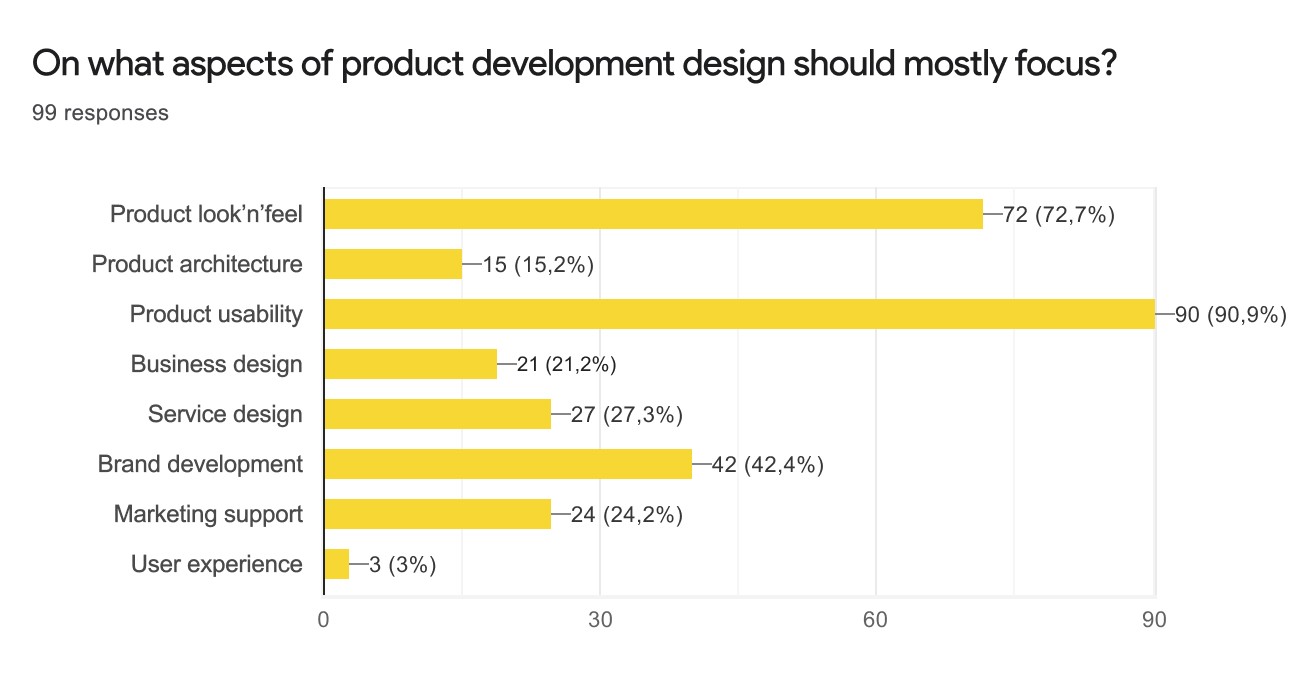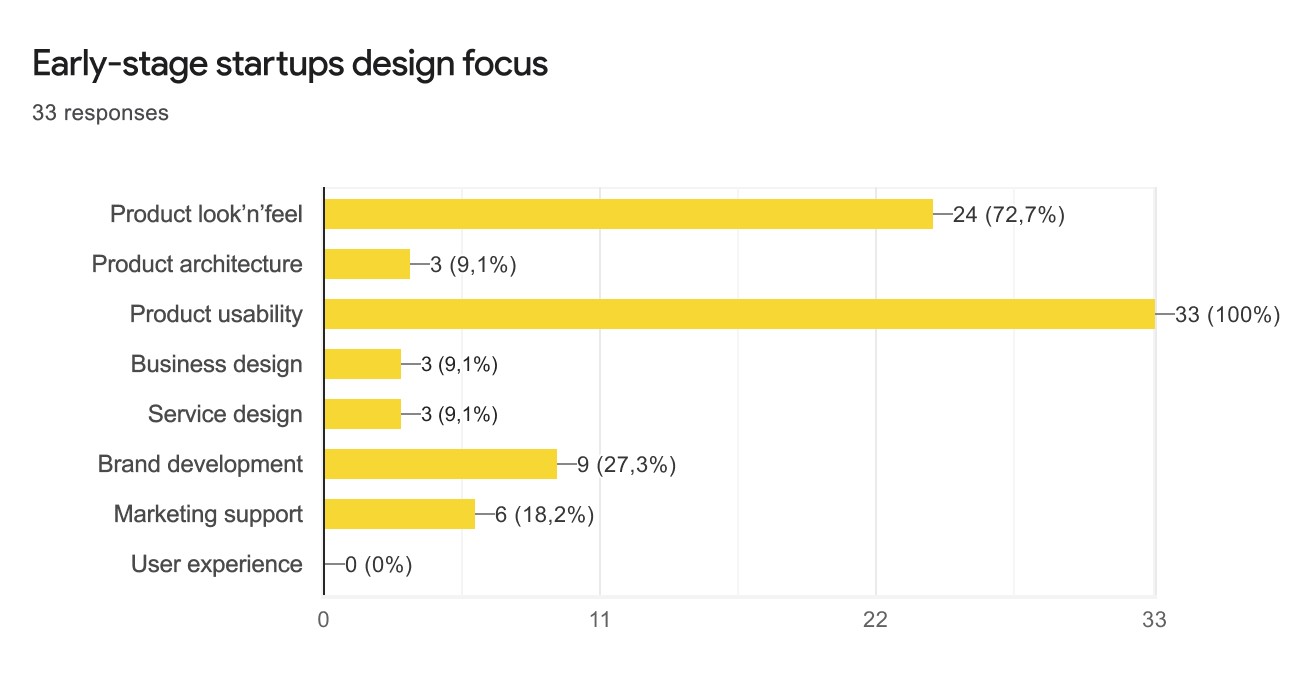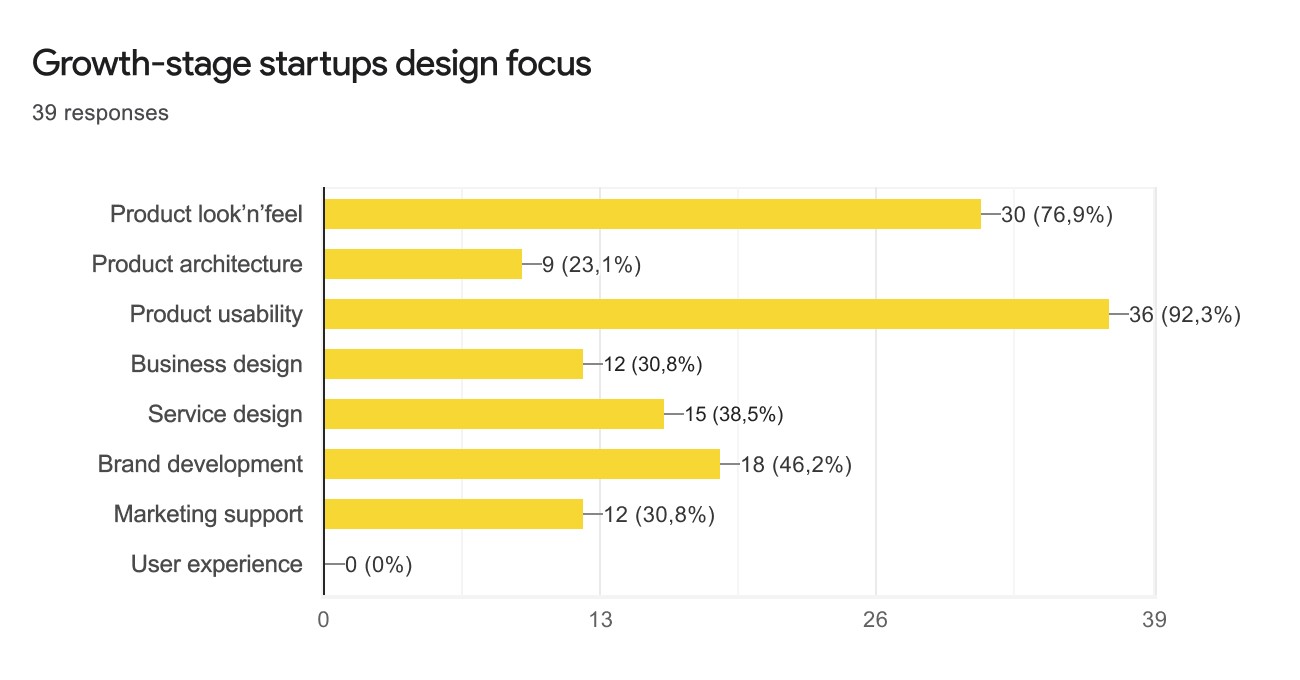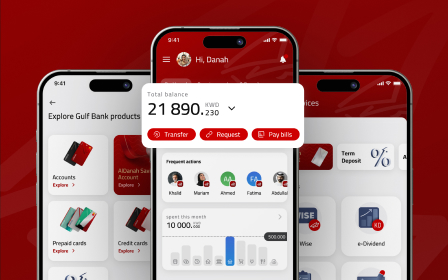Startup survey analysis: Great design expectations and prejudice in digital products in 2020

We at Qubstudio love great design and innovative products. We celebrate startups and their willingness to enhance user experience in their chosen domain. Nonetheless, we frequently observe young products, even with the most fabulous idea, falling through the market cracks and struggling to gain their audience’s attention.
Thus we decided to research what design issues startups face and how it affects their development. We surveyed almost 100 startups (99 to be exact), mainly focused on mobile and web app development, and hope that this study will help unique products to strive on the market, and to fall to oblivion.

Forbes, 500 startups, Y Combinator, McKinsey & Company, Fast Company, Startup Daily, and random people on Medium are all telling founders that the design is crucial for their start-up. They are bombarded with design-first approaches, design thinking methodologies, and sprints.
As a result, more than half of all respondents believe that design can have a positive impact on product conversions, revenue, brand equity, and entry to the new markets.

An absolute majority of the respondents also believe that design plays a critical role in their product as well.

But we were curious – if the majority of startups genuinely believe in the power of design, why then so many products fail to implement design-first methodologies within their development process?
This analysis reveals to us that there is a profound gap between the expectations that product founders put on the design and its functional role in the conventional product creation process.
The main body of surveyed startups consists of growth and early stages of products. Specifically, three companies identified themselves as ideation companies, thirty-three as an early-stage, and thirty-nine as growth startups. None of the surveyed companies identified themselves as mature companies.

Overall, the majority of respondents picked product usability and look’n’feel as the main focus of their design process. Brand development and service design came second and third accordingly.

Those answers reveal that in most startups, design serves the purpose of creating a visually pleasing and generally useful product. Only less than the third of respondents believed that the design is crucial for creating a viable business model, building product architecture, and supporting marketing operations.
Early-stage and growth companies, as the most dominant segments of surveyed companies, could be compared to analyze the correlation between design perception in different product development stages.
For example, out of thirty-three surveyed companies on early-stage, all chose product usability as the main design focus, but only three – product architecture, brand development, and marketing support.

On the contrary, in growth-stage companies, more than half (twenty-nine out of thirty-nine companies) said that their process focuses on product and marketing aims. Twelve companies also mentioned service design as their focus.

Additionally, less than half of all respondents said that they believe that brand development is an important design role in a startup. However, when asked whether the brand creation is essential for a product altogether, more than sixty percent answered positively.

But only thirty-six percent had it professionally done. A third of respondents created their brand solely without the designer’s involvement at all. Likely, those products didn’t develop their brand strategy, only the logotype.
Read more on brand strategy in our article.

Indeed, the visual value of design is essential for product success on the market, but in mature products, the design also plays a vital role in business and product development.
Surprisingly, almost none of the surveyed companies think that UX/UI designers should focus on user experience, even though the experience is in the name of the profession itself.
Read more about how designers can create a UX strategy for your product
in our article.
Assessing the statistical data, we can conclude mature startups are also more developed in their design perception than younger ones, thus needing a more profound design process to strive.
Different product stages call for different approaches to design. Young products may be forced to pivot until they find their market fit, and spending a lot of resources on visual design may be unreasonable.
Though all products, and especially the young ones, benefit enormously from building consistent UX and product strategy, as written in our specialized article. The majority of researched startups believe that there is a need to focus intensely on the evolving tactics but usually perceive it more intuitively rather than strategically.

The inconsistency between the design expectations and the reality of startup creation could be explained by the lack of involvement from a professional mature design team.
Most researched startups have one designer within their team or have no designers at all. Less than a quarter of respondents have more than one designer and even less than that work with a professional design team.

As a result, fifty-eight percent of all respondents are not satisfied with design competency within their team, and only less than half of all respondents are happy with their design situation.

This study showed us that usually, product owners within startups genuinely believe that the design is crucial for their product development. Still, they see and implement only the tip of the design iceberg.
If considering the design process as solely the creation of nice-looking screens, it loses its power to create truly effective and useful products. The design should be implemented holistically into product development, starting from profound user research and strategy development performed by a mature design team.
Overall this research helped us to understand that:
- There is a profound gap between the expectations that product founders put on the design and its functional role in the conventional product creation process.
- Usually, product owners within startups genuinely believe that the design is crucial for their product development. Still, they implement only the tip of the design competency.
- The inconsistency between the design expectations and the reality of startup creation could be explained by the lack of involvement from a professional mature design team.
- Mature startups are also more developed in their design perception than younger ones, thus needing a more profound design process to strive.




